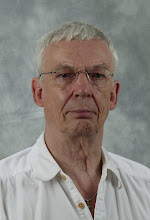As children we were raised with masturbatory fantasies of power. We saw films of steel mills spewing there red-hot sprays of molten steel, scores of brand new automobiles marching along their assembly lines, muscular workers turning giant bolts on giant machines with giant wrenches, tons of concrete being poured to create Hoover Dam, and, most thrilling of all, warships plunging through stormy seas as wave after wave broke over their bows and formations of fighter jets cutting across a clear blue sky.
We grew up believing we were entitled to both power and progress, to industrial and military might. Progress, we believed, was a straight-line ascent that would go on forever and ever.
That was then; this is now. Now we are beginning to see that rather than a straight line, technological progress, like all other cultural movement, inscribes a parabolic curve with it ascent, apogee and descent, and at this point in time it appears that we are on the descent segment of the curve. The advances in technology are becoming increasingly trivial (do I really have to stream videos on my cell phone?). One could even argue that the technological advances that profoundly changed society surfaced between 1820 (the emergence of the railroads) and 1930 (the splitting of the atom) and that these major advances, while they seemed fantastic at the time, are now producing some very negative feedbacks.
It could well be, in the far, far future, that our Age of Oil will barely register as a cosmic fart on the timeline of geological history, assuming anyone is still around to make this observation.
Empires also inscribe parabolic curves, and ours is definitely on the decent segment. John Michael Greer points out that “[E]mpire is the methamphetamine of nations; in the short term, the effects feel great, but in the long term they’re very often lethal.”
Power once seized must be defended, and this is how empires end up bankrupt Empire is an ego trip, and ego trips are essentially fragile balloons filled with hot air. With the passage of time this hot air leaks out and all that is left in a flaccid membrane.
Power doesn’t just corrupt, it rots the brain because those who achieve power live with the fear that they could easily lose this power. Therefore everything outside of the corridors of power is seen as a potential threat. Clear thinking and power don’t mix well. In an effort to hold on to it the powerful end up hollowing out the very institutions that gave rise to their power.
Power only feels safe when it is growing. Unfortunately, growth is a parasitic vampire that sucks the life blood out of its host. As the host weakens, power weakens until it withers and dies. If there is one rule that governs power it’s that it’s never forever. Yet, those who hold power believe it is. That is their tragic flaw and why the gods spend so much time laughing.
The feudal lord of the thirteenth century was convinced that feudalism was not only ordained by God that it would last forever. The powerful always think they are the endpoint of history while behind their backs history continues to move at its slow, steady pace. And nobody, but nobody, knows where it’s going.
-
Monday, February 15, 2010
Subscribe to:
Post Comments (Atom)


4 comments:
Amiable post and this mail helped me alot in my college assignement. Gratefulness you for your information.
Those in positions of (temporal) power never look around, from side to side, or behind themselves with any panaoramic binoculars, but rather only at the immediate future, and then only with a small magnifying glass that severely limits their persepctive.
With binoculars we would see the millions suffering in Haiti, but our magnifying glass keeps us focused on the dispropoationate amounts we are spending to fly snow into Vancouver.
National economies are in great peril and people go qithout food and health care, but we instead spend millions per day to rout the Taliban from Marja.
Politicians and economists all suffer from the draw of instant gratification.
Anon.
Glad I could hlep.
Ivan,
As Samuel Beckett once said, "Habit is a great deadener
Post a Comment